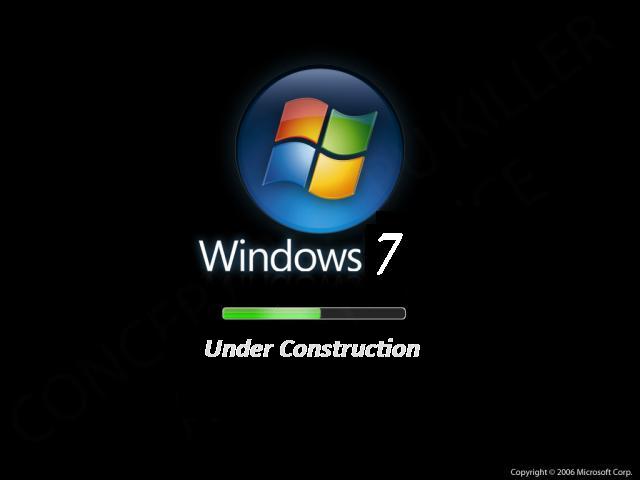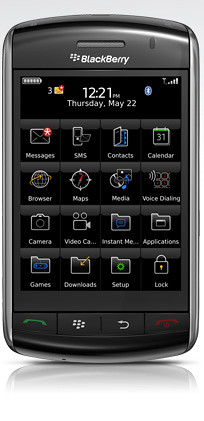 Ed Baig at USAToday
Ed Baig at USAToday just offered up his view of T-Mobile's Andriod-based G1 phone, and wonders aloud how much of a hit it is to the iPhone. If you aren't familiar with
Android, it is Google's competitor to Microsoft's Windows Mobile OS (WM6) for smart phones and less directly Apple and the iPhone.
Why do I say "less directly" in the case of Apple? Easy:
- iPhone is a "locked" hardware and software platform
- WM6 is a somewhat locked software platform that has certain hardware requirements (though that is less true than it was 18 months ago - we'll get to that later...)
- Android is an open software platform that has virtually no direct requirements on hardware.
So Android is a much more direct shot in my mind at WM6 than iPhone, at least in my mind...
With the iPhone, Apple has the luxury of owning both the hardware and the software, and like it or not has some control over what applications run on the platform. The benefits are extreme consistency of experience and stability. The downside is it gives Apple more power than some would like. It makes great sense in terms of a business model and branding, and the ultimate benefit to the user community is a level of quality I'm guessing will be lacking on other platforms at the price of full freedom of the development community.
Contrast that to WM6. On the one hand, Microsoft had some pretty rigid rules for the hardware - the buttons had to be placed just so, but Microsoft didn't do much more than that to provide rules and structure to the user experience. The result was that the best devices running the OS like the Palm Treo, the Samsung BlackJack and the Motorola Q weren't all that different in a lot of ways, and their utility lived and died by how well Microsoft implemented the WM6 platform. Also, there isn't any central way to get applications for WM6 devices, which can be a good thing and a bad thing. Lastly, the lack of any enforced guidelines for application behavior means that you'll get the absolute best of the developer community as well as the worst. And the worst can be pretty bad. (This isn't to say that there aren't bad apps on the iPhone, by the way...). Given how decentralized application purchasing is, it seems hard to bet on the platform as a developer.
Enter Andriod. Cool, open-sourced, no rules on hardware design, lots available tools and complete freedom to make it work like you want it to work. There will also be both the decentralized purchase options (e.g. websites from the developer, the phone provider, etc.) for buying apps for the phone as well as the Android Marketplace as a one-stop shop. AAAAAaaah freedom!!
But just like the world outside of technology, freedom carries a price. Most mobile phone providers aren't used to developing their own OS (except Palm, who shot their touch enabled, widget-like mobile OS a while back in favor of Windows Mobile). As someone who has some insight on integrating hardware and software, I can tell you it isn't a picnic. The virtual chains of WM6 (and the iPhone OS) do have a couple of huge benefits: consistency and predictability. As a former Samsung BlackJack user, I could pick up a Treo or a Q and be in business right away. With Android, you'll have a range of hardware and implementations as the manufacturers extend from the Android base. The very modularity of Android will guarantee that the manufacturers who take it and make it their own experience will more than likely make it virtually unrecognizable.
The closest parallel I can think of right now is the latest products from HTC (who also happen to make T-Mobile's G1...) that are based on WM6.1. The
HTC Diamond and more recent
Touch HD run a really gorgeous user interface that really leverages touch to a high degree. It also solves one of my big complaints as a WM6 user, which was I had to "dig" too far for many common things - pictures, music, browser, calculator, note-taking and others. Excellent? Yes! Recognizable as a Windows Mobile experience? Not really. I suppose Microsoft looked at Android coming and loosened the chains, and it is hard to argue with the results - the HTC products are extremely slick.
So Android is really open and Microsoft is becoming more open. Does this mean bad things for Apple? I think it certainly means more competition. Apple has been very careful in what they've allowed the iPhone to do. It still doesn't do video, multimedia messaging, cut and paste and more. It seems like they are doing only the things they can do well, which also offers the ability to improve the product from version to version. But you can bet that the non-Apple providers will go straight at those gaps in the iPhone feature set and attack with a vengeance. What is Apple's biggest defense and advantage in the face of this competitive inferno?
My answer? Chains.
The rigidity of the hardware and software platform ensures that how things work will be extremely consistent, and consistency is a good thing. An iPhone will always feel like an iPhone and simplicity is a good thing. Also, the central experience for adding applications to the iPhone through iTunes and the iTunes store means you'll always know where to go (and Apple with always profit).
The decentralization of the experience and adding applications/utilities will mean that Android will likely evolve to be a very rich platform, but a decentralized one. Hardware vendors who understand leveraging hardware and software together will make it their own and benefit from the results. Trying to make hardware and software beautiful together isn't simple (just check out
RIM's bumpy road developing the
Blackberry Storm...). Application developers will have to struggle with potential hardware diversity, so in a real way there will be some limitations on what they can do if they choose to reach down to phones that aren't touch enabled or have unique hardware.
Don't get me wrong, I think both WM6.x is far from dead and Android is very important for the industry, but it will take a little while for the dust to settle and for the winners to challenge Apple's "keep-it-simple" iPhone. Ultimately, Apple is going to have to up the ante a bit, but they've been pretty savvy to date, and frankly the engine that allows them to profit from most dimensions of the iPhone wave positions them well to invest.
It certainly won't be dull to watch...







